Research to Improve Epilepsy Diagnostic Accuracy Leads Saktivi Harkitasari to Obtain a Doctoral Degree
Wednesday, March 23, 2022
Located in the Prof. dr. I Goesti Ngoerah Gde Ngoerah, there has been a Doctoral Promotion conducted in a hybrid manner with promovenda candidate dr. Saktivi Harkitasari, M.Biomed, SpS with the dissertation title "The Effect of Induction of Epileptic Awakening on the Expression of Micro-Ribonucleic Acid-106b-5p and messenger Ribonucleic Acid CASP6 in White Mice of BALB/c strain."
Epilepsy is the fourth most common chronic neurological disease in the world, causing high disability and mortality in patients. Establishing a diagnosis is difficult. Accurate diagnosis supports the success of therapy. MiR-106b-5p has high sensitivity and specificity as an epilepsy biomarker. MiR-106b-5p is thought to regulate CASP6 gene expression in influencing neuronal cell apoptosis in the brain. This study aims to prove the theoretical mechanism of miR-106b-5p through CASP6 mRNA expression in influencing neuronal cell apoptosis in white mice induced by epileptic seizures.
A new finding in this study is that the induction of acute phase epileptic seizures can affect the high expression of CASP6 mRNA, so this study strengthens the theory of the role of the mechanism of apoptosis mediated by CASP6 mRNA after induction of acute phase epileptic seizures in experimental animal models of temporal lobe epilepsy mice. The implication of the results of this study is that the function of miRNA in the cytoplasm and nucleus is to inhibit gene expression or known as gene silencing. In the cytoplasm, miRNAs can cause deadenylation, degradation and 5' decapping of target mRNAs due to their binding to 3' UTR, 5' UTR and coding sequences of target mRNAs; and translational repression through inhibition of ribosome binding to target mRNA. In the nucleus, miRNAs can cause inhibition of gene expression through the interaction of miRISC with the GW182 family protein, thereby inhibiting the open reading frame (ORF) of the target mRNA or the interaction of miRISC with the repressor complex, resulting in a failure of sense strand transcription.
Doctoral Promotion was led directly by the Dean of Medical Faculty Unud, Dr.dr.Komang Januartha Putra Pinatih, M.Kes with a team of examiners:
1. Prof. Dr.dr. Tjok. Gde Bagus Mahadewa, M.Kes.,SpBS(K) Spinal, FICS (Promoter)
2. Dr. dr. Anna Marita Gelgel, SpS(K) (Copromoter I)
3. Dr. dr. Ni Made Linawati, M.Si (Copromotor II)
4. Prof. Dr. dr. I Made Bakta, Sp.PD-KHOM
5. Prof. Dr.dr. Sri Maliawan, SpBS(K)., FICS
6. Prof. Dr. drh. Ida Bagus Komang Ardana, M.Kes
7. Dr. dr. I Nyoman Golden, SpBS(K)
8. Dr. dr. I Made Sudarmaja, M.Kes
9. Dr. dr. Achmad Adam, M.Sc., SpBS
10. Dr. dr. I Wayan Niryana, M.Kes., SpBS(K)
While the academic invitations are:
1. Dr. dr. Gede Wirya Kusuma Duarsa, M.Kes., SpU(K)
2. Dr. dr. I Made Muliartha, S.Ked., M.Kes
3. Dr. dr. Made Ratna Saraswati, SpPD-KEMD.,FINASIM
4. Dr. dr. Luh Putu Ratna Sundari, S.Ked., M.Biomed
5. Dr. dr. I Putu Eka Widyadharma, M.Sc., SpS(K)
Dr. dr. Saktivi Harkitasari, M.Biomed, SpS was declared a graduate of the 342nd Graduate Doctoral Program of Medical Sciences, Faculty of Medicine, Udayana University with CUMLAUDE predicate
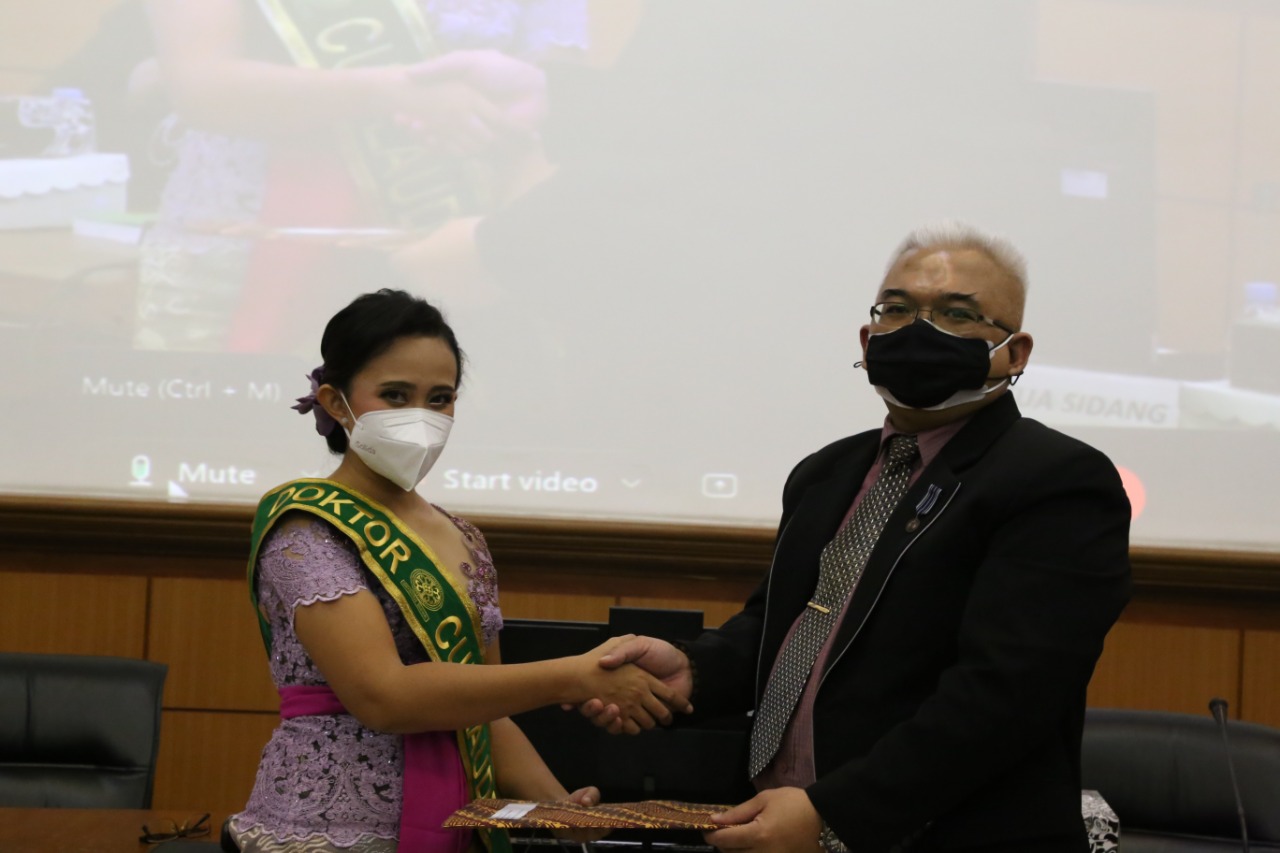
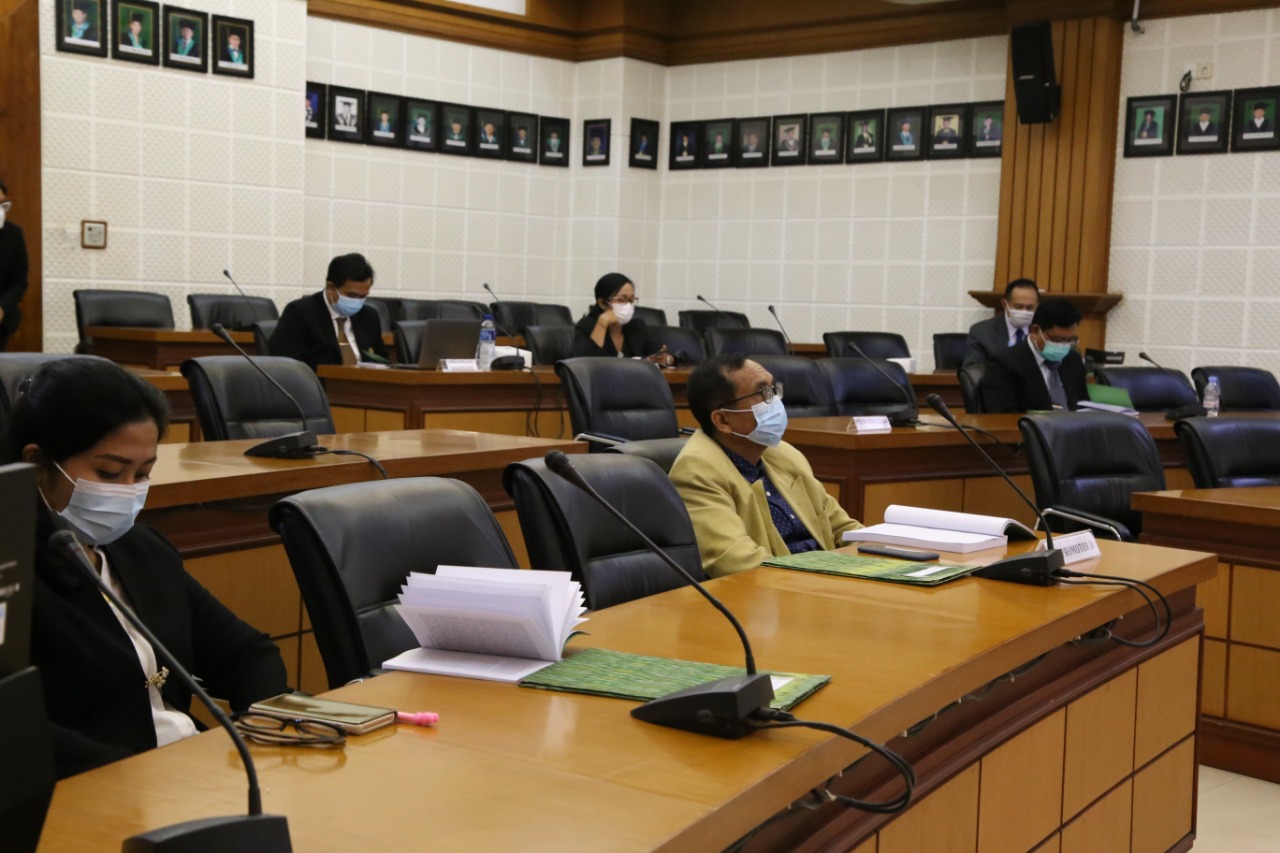

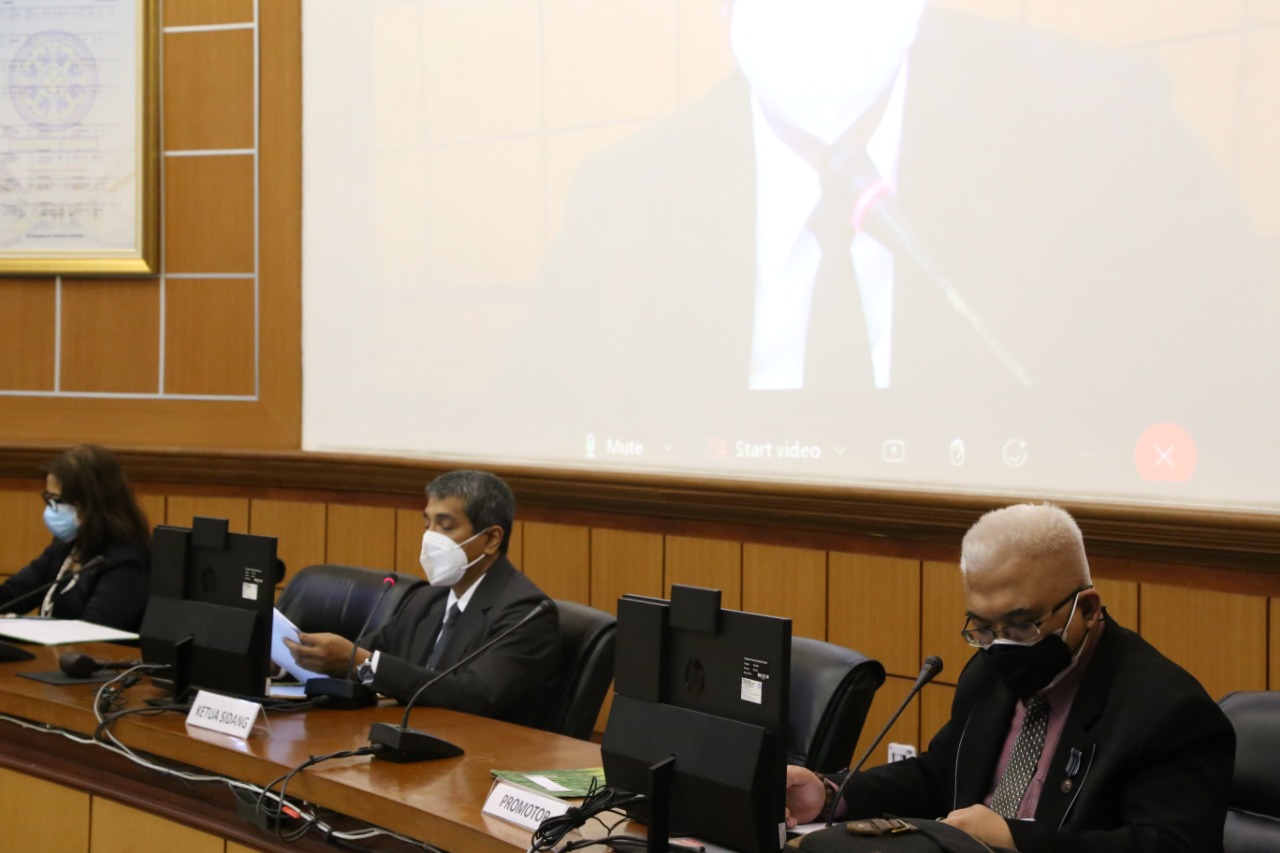
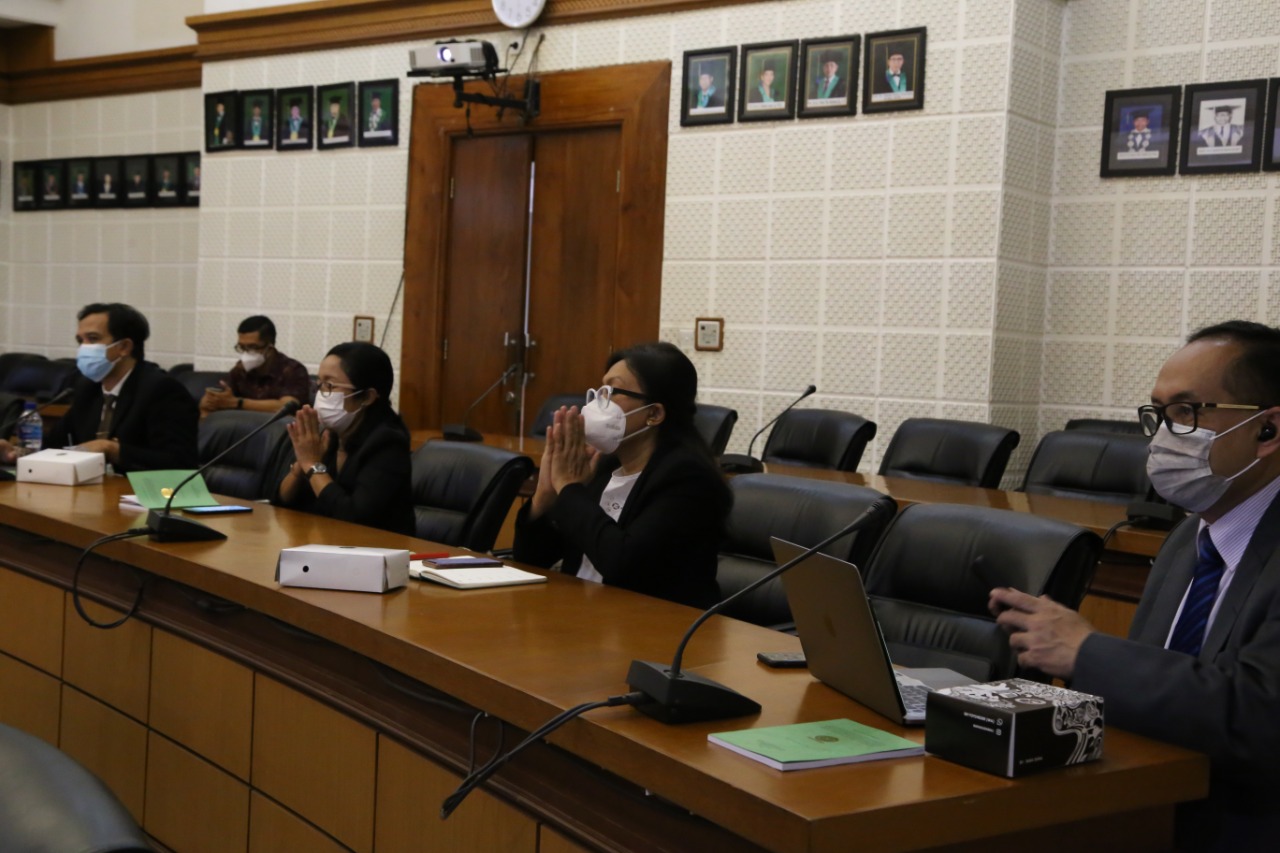


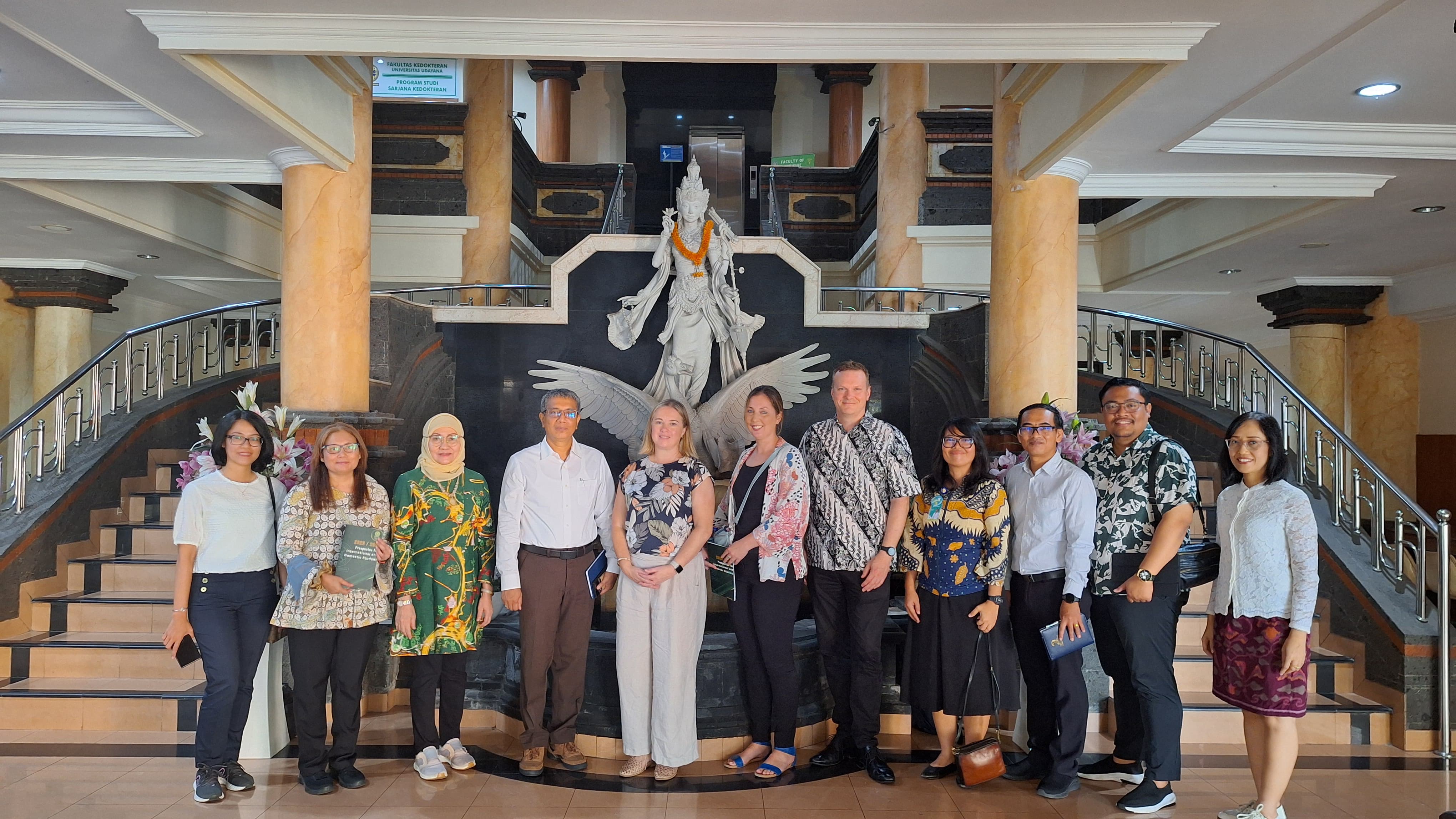
UDAYANA UNIVERSITY